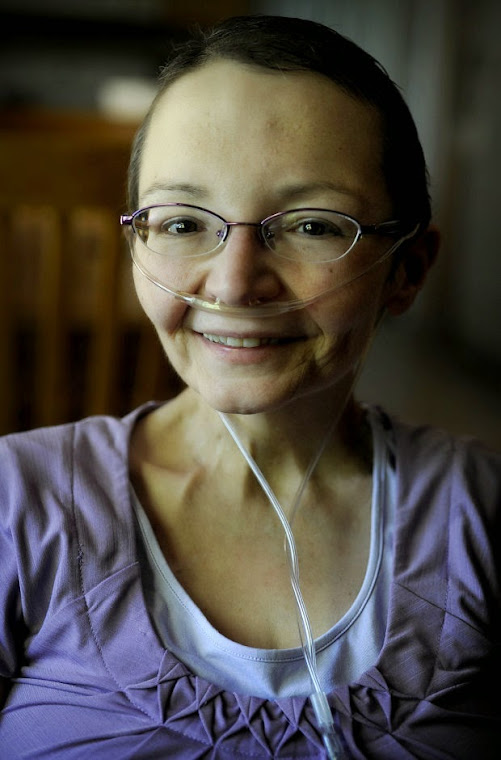After a heart catheterization by Dr. Tandar (to see how big the vessels are and the structures of the heart), it's determined that I'm not a good candidate for open heart surgery, nor for the TAVR through the right groin.
Of course not! Why would I want to be easy or normal.
I get the TAVR through the ribs, which is the most painful way to replace an aortic valve. It's the least desirable option because the U has done only 12 of them, I'm their 13th patient and because the ribs are wrapped with nerves and they have to irritate those nerves a lot by separating or spreading the ribs and inserting instruments in and out of them.
Lucky me!
I'm scared to death. They're going to go into my heart, push a foreign body (a manufactured valve) into it, and hope it keeps working? It's my heart. It's essential. There are lots of risks associated with this procedure. And even though this technique has been used in Europe for 5-6 years, it was just approved in the US in 2011.
Yikes!
Almost too late, I do receive some calm assurances that this surgery won't kill me. (That would be too easy.) And that it will go well. Finally, two days before the surgery on June 19, I can sleep again. Whew!
The surgery actually goes well. I refuse the Versed, so I'm awake and alert as they start the arterial IV line (so they can monitor everything) and get to ask some questions as they get set up. Eventually, I'm holding my own oxygen mask because it won't stay on and talking to the various personnel in the operating room.
I can tell the anesthesiologist is having trouble placing the arterial line, but what did he expect from someone who's had five different chemo regimens so far? All of that poison running around my blood vessels has got to do a lot fo damage. About 20 minutes after arriving in the room, he must have gotten it because, without any warning, I start feeling heavy and dizzy and doze off.
It can't be too much later though, that I realize I'm awake again, but I can't move anything: eyes, fingers, mouth--nothing.
But I'm hearing all of the conversations in the room, and most seem to be centered on my chest and how they're going to move my left breast and keep it away from the surgery site. My chest is mentioned at least 5-6 times, and I'm laughing to myself and almost feel guilty that I'm listening in on their dilemma without them being aware of it.
Finally, someone offers to run and try to find some heavy-duty tape. And at that point, I'm asleep again.
When I wake up, Dale's in the room and a nurse, but I'm greatly annoyed because my wrists are tied down somehow. I'm also still intubated and have that tube down my throat, but I was warned about that, so I'm not surprised or too annoyed at that.
When I'm finally conscious enough, they remove the restraints; and I ask for paper and a pen so I can at least communicate by writing. (Dale says my first notes were just scribbles, but I'm convinced they were really important.)
Not too much later the intubation tube comes out, and I can really assess the damage.
I have the following things attached to me:
1. Intubation tube
2. Pacing wire in my right groin
3. Arterial IV line
4. Swann's catheter
5. MAC line (central line in my neck)
6. 1 chest tube
7. Jackson Pratt drain
8. Triple lumen catheter in my left neck
9. Port accessed
10. BP cuff
11. O2 monitor
12. EKG leads
13. Squeezy things on both legs to prevent blood clots
Whew! No wonder I feel a little beat up. Actually though, considering, I feel pretty good, and I'm moved to a regular room within a few hours.
Dale says that they told him to expect up to a 4 hour surgery, but I was in there only about 90 minutes. They told him they'd give him updates every 30 minutes; but they didn't have time to call him and give him the third update before the doctors were in front of him, telling him it was over and went very well.
Hooray! Survived that obstacle.

No comments:
Post a Comment